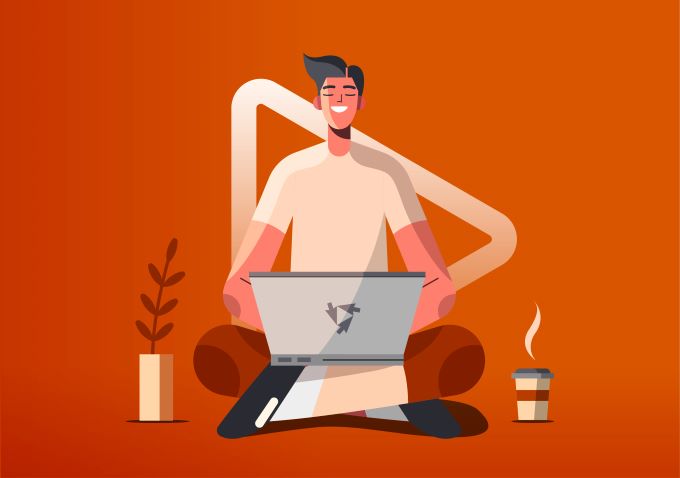

A digital transformation fuelled by changing consumption patterns

The pandemic is changing consumption patterns in Southeast Asia and is speeding digital transformation.
We’re already midway into 2020, and consumer behaviour is changing — enabled largely by tech solutions.
A recent Ipsos survey revealed the changing patterns of consumption stemming from a shift in consumer lifestyle preferences. It’s clear that the sectors that thrive have one thing in common — they’ve altered their business models and embraced technology.Abhishek Choudhary, Senior Innovation Specialist at Ipsos Singapore, spoke to our Editorial Content Director David Austin about their report: Coming Out of Lockdown in Southeast Asia.
Watch what they discussed here.
Differing impacts in various sectors
One of the biggest takeaways from the study was the theme of “more in and less out”. Activities that can be done at home or on a small scale within groups of family and friends will continue in this COVID aftermath, but everything else that takes place on a large scale outside of the home will be put on hold.
“Things like going and meeting their relatives, it’s still more in, or if there’s a small get-together at a friend’s house, that’s still in. But whatever is out, like a social event, a concert or sports event, traveling outside of their own country. That’s a big no-no in 2020 right now,” says Abhishek.
All these changing behaviours have affected various industries in different ways.
More demand can be expected for groceries as people choose to stay in and cook their own meals instead of eating out. Demand for personal care products and cleaning supplies is also set to increase as hygiene remains a primary area of concern since the coronavirus isn’t going away permanently anytime soon.
“What we also see that there is a huge wellness and health focus, because with one of the things with COVID-19 was that if you have co-morbidities, then you are more likely to succumb to it. There’s a huge amount of increase in health wellness apps, and those sort of initiatives, even with the online nutritionist business,” says Abhishek.
It doesn’t come as a surprise that these three categories are also the most common online purchases during the restrictions.
The e-commerce boom
Source: Criteo
In fact, the pandemic and lockdown has accelerated the shift from physical retail to e-commerce at a faster pace than initially forecasted in this digital age.
Consumers in France, Germany and the UK who do more than half of their shopping online have increased by 80% since the outbreak, and 60% of them would continue to shop online after the pandemic passes.
“One of the things that we think COVID-19 will do is change behaviours. These are pandemic behaviours, but some of these behaviours are going to stay, for sure, in the future as well,” says Abhishek.
With a number of brands shuttling their brick-and-mortar stores and the decline in people willing to shop physically, could this spell the end of the in-person shopping experience?
40% of UK shoppers who had returned to shopping in-person said that their in-store experience was ‘less enjoyable’ than pre-COVID-19. This was due to factors like having to queue to enter a store, being unable to try on certain products and longer checkout waits.
Even Capitaland, who operates Singapore’s largest mall network, announced that it would help its retailers explore online business opportunities by introducing an e-commerce platform known as eCapitaMall.
If the trends are any indication, business processes need to adapt. Having a business continuity plan is synonymous with going digital, especially for retail stores. This should include running a successful e-commerce site to tap onto this shift in buying behaviour.
“E-commerce was developing, but what COVID-19 has done is that it has given such a huge boost to the sector that if you do not have e-commerce in your plan or innovation launches, you must reconsider having it,” says Abhishek.More than that, there is a need to cater to mobile users by providing a seamless mobile shopping experience. Even before the pandemic hit, nearly half of consumers preferred to shop on mobile than in-store. This trend is only set to rise.
Thinking outside of the box… digitally
As more people stay home, a longer recovery is expected for the travel, events and fitness industries.
However, while it might be harder for the travel and hospitality sector to take the core of their business offerings online, some tourism boards have tried to make do in the meantime — with a little help from virtual reality (VR).
Up for a hike in Yosemite National Park, a stroll along the Colosseum, or maybe a tour of the Louvre? Well, now you can. It’s a far cry from the actual experience and not exactly profitable since most of them are offered free on their respective sites, but VR tourism does seem to quell just a little bit of that wanderlust as people continue to stay home.
On the other hand, the events sector has had a little boost from digital in the form of webinars and virtual events. A Zoom lunch with your colleagues in lieu of a physical gathering is probably not a new concept anymore; at the same time, virtual events have also been brought onto a larger scale in terms of business conferences and workshops.
As it turns out, they’re not just reserved for stuffy corporate meetings either. You can take your fun social events into the virtual world too, like how clubs and DJs all over the world have managed to bring the party online.
Likewise for the fitness industry. Even as gyms start opening up, the online fitness business shows no signs of slowing down just yet. Riding on the high from when facilities were shut during lockdown, home workout videos continue to be all the rage. Just look at YouTuber Chloe Ting, who has amassed 12.3 million subscribers to date just by uploading workout challenges and a slew of healthy recipes.Some major gyms in Singapore have also pivoted to offering livestream classes in lieu of physical ones. Never mind if you lack the necessary equipment, the internet has also made the rental of studio equipment possible. It’s true, you can now attend a spin class from the comfort of your own living room.
Reach your consumers, not the other way around
Source: Cisco
A crisis is a catalyst for change, and there’s none more debilitating to the economy than the ongoing coronavirus pandemic.
Singapore’s GDP has fallen by 41.2% in the second quarter of the year, while large retail companies like Guess and Zara are shutting their stores. Even MUJI’s US business filed for bankruptcy. There can’t be a clearer sign of how consumer sentiments have been affected by COVID-19.
If the survey results from Ipsos are anything to go by, it’s starting to look like people are going to continue staying in more often.
Bottom line? It’s high time to take your business into the digital world and meet your consumers right where they will be — at home.
Need some help? Approach our CEO and founder Simon Kearney at [email protected] today.
Read more from Click2View:
- With COVID-19, have you had ads being rejected? Don’t mention the pandemic!
- Execute shoots safely. Here’s how.
- In the post-pandemic world, this is what work will look like.
Sign up to our newsletter for a weekly update on the latest content marketing news. Don’t forget to subscribe to our YouTube channel too!
Click2View is Southeast Asia’s premiere full-service independent B2B content marketing agency servicing clients like Microsoft, Google, Visa, Prudential, and the Lee Kuan Yew School of Public Policy.








